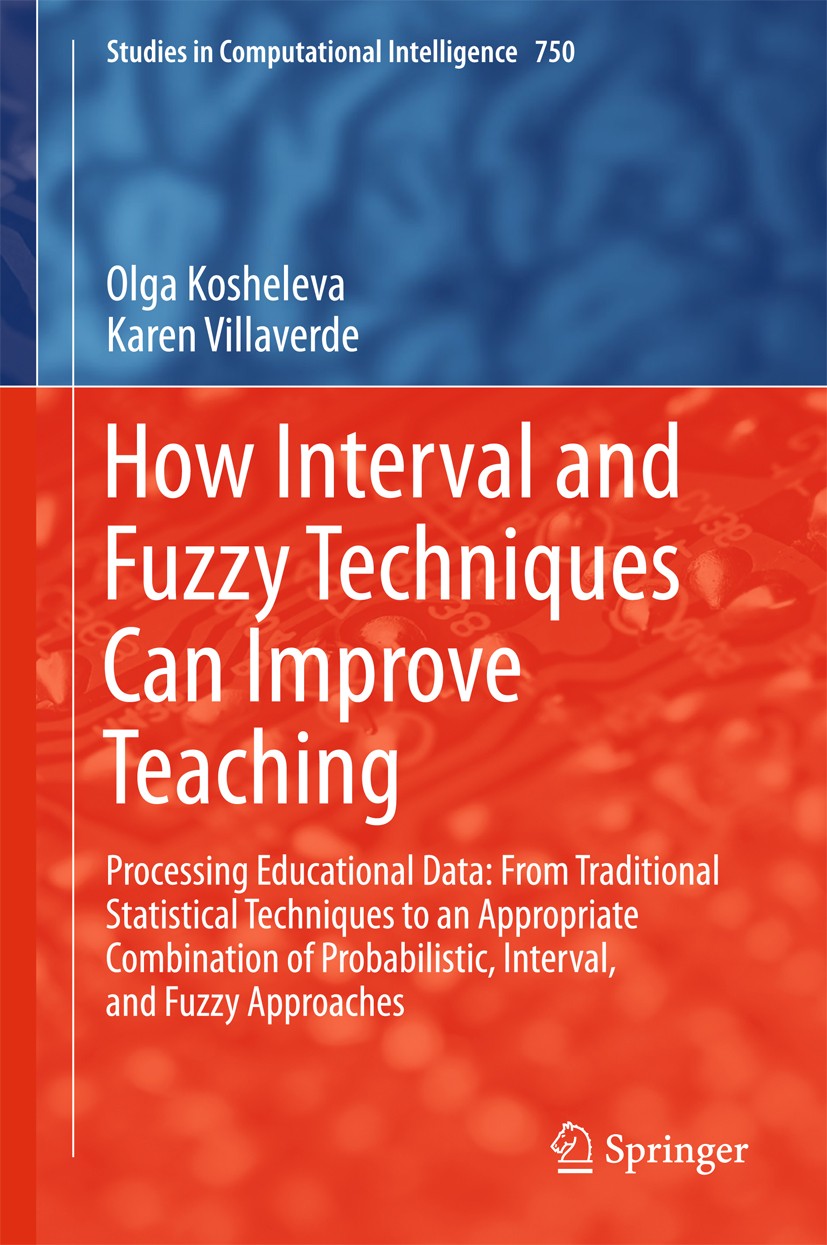| 书目名称 | How Interval and Fuzzy Techniques Can Improve Teaching |
| 副标题 | Processing Education |
| 编辑 | Olga Kosheleva,Karen Villaverde |
| 视频video | http://file.papertrans.cn/429/428632/428632.mp4 |
| 概述 | Includes the latest research on processing educational data.Presents traditional.Written by leading experts in the field |
| 丛书名称 | Studies in Computational Intelligence |
| 图书封面 |  |
| 描述 | .This book explains how to teach better and presents the latest research on processing educational data and presents traditional statistical techniques as well as probabilistic, interval, and fuzzy approaches. Teaching is a very rewarding activity; it is also a very difficult one – because it is largely an art. There is a lot of advice on teaching available, but it is usually informal and is not easy to follow. To remedy this situation, it is reasonable to use techniques specifically designed to handle such imprecise knowledge: the fuzzy logic techniques...Since there are a large number of statistical studies of different teaching techniques, the authors combined statistical and fuzzy approaches to process the educational data in order to provide insights into improving all the stages of the education process: from forming a curriculum to deciding in which order to present the material to grading the assignments and exams...The authors do not claim to have solved all the problems of education. Instead they show, using numerous examples, that an innovative combination of different uncertainty techniques can improve teaching. The book offers teachers and instructors valuable advice a |
| 出版日期 | Book 2018 |
| 关键词 | Computational Intelligence; Fuzzy Approaches; Interval Approaches; Probabilistic Approaches; Processing |
| 版次 | 1 |
| doi | https://doi.org/10.1007/978-3-662-55993-2 |
| isbn_softcover | 978-3-662-57256-6 |
| isbn_ebook | 978-3-662-55993-2Series ISSN 1860-949X Series E-ISSN 1860-9503 |
| issn_series | 1860-949X |
| copyright | Springer-Verlag GmbH Germany 2018 |
 |Archiver|手机版|小黑屋|
派博传思国际
( 京公网安备110108008328)
GMT+8, 2026-2-8 19:08
|Archiver|手机版|小黑屋|
派博传思国际
( 京公网安备110108008328)
GMT+8, 2026-2-8 19:08


